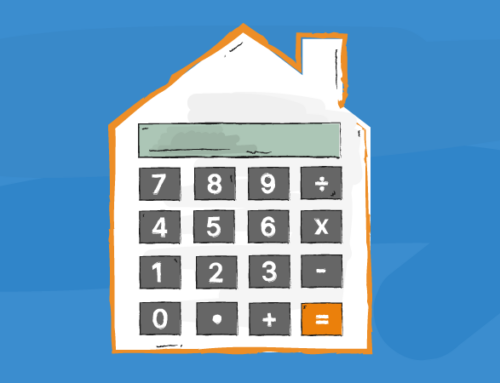Landlord Checklist for Renting a House

Renting out a property comes with various legal responsibilities and practical considerations. Whether you’re new to letting or have multiple properties, following the right steps can help protect your investment and keep things running smoothly.
This landlord checklist for renting a house outlines your key responsibilities, including legal compliance, property preparation, tenant checks, and ongoing management – helping you avoid issues for a hassle-free rental process. Let’s go through what to consider before handing over the keys.
What are a landlord’s responsibilities before renting a property?
Renting out property is a significant commitment – and one that many UK residents are taking on. In fact, in the UK, there are approximately 2.84 million private landlords.
All landlords must provide a safe living environment for tenants and make sure their property meets UK standards. As a landlord, GOV.UK states that you must:
- Carry out right to rent checks: Check that tenants can legally reside in the UK by verifying their immigration status before the tenancy begins.
- Provide essential documentation: Supply tenants with your full name and address or those of your letting agent, along with a copy of the government’s How to Rent guide, which offers practical advice for tenants.
- Protect the tenant’s deposit: Place the tenant’s deposit in a government-approved tenancy deposit protection scheme within 30 days of receipt.
- Ensure property safety: Conduct annual gas safety checks, ensure electrical systems are safe, and install smoke and carbon monoxide detectors as needed.
- Maintain the property: Keep the property in good repair, addressing issues relating to the structure, exterior, and essential installations for water, gas, electricity, and heating.
- Provide an Energy Performance Certificate (EPC): Give tenants an EPC to inform them about the property’s energy efficiency.
- Install smoke and carbon monoxide alarms: Fit smoke alarms on every storey and carbon monoxide alarms in rooms with solid fuel-burning appliances.
- Register with a redress scheme: If you’re a letting agent or managing property on behalf of others, register with a government-approved redress scheme to resolve disputes.
- Follow fire safety regulations: For furnished properties, ensure that furniture and furnishings meet fire safety standards.
The landlord checklist
Before you rent out your property, you’ll need to make sure you’re compliant with UK regulations. Follow our landlord checklist below to make sure you’ve covered your responsibilities.
Tenant documentation
Right to rent checks
Landlords in England must conduct right to rent checks to ensure tenants have the legal right to live in the country. This involves verifying the tenant’s original documents in person or using the Home Office online service. The Home Office also allows you to use certified Identity Service Providers (IDSPs) to carry out digital right to rent checks.
Many landlords assess a tenant’s affordability by requesting proof of income, employment references, or conducting credit checks to ensure they can reliably pay rent.
The tenancy agreement
A tenancy agreement outlines the legal rights and responsibilities of both the tenant and you as the landlord. It should comply with residential letting legislation and be written in plain English to avoid ambiguity.
These agreements typically cover rent payments, the duration of the tenancy, deposit terms, and conditions regarding property use. It’s advised to have a tenancy agreement reviewed by a solicitor to ensure it’s legally sound and fair to both parties.
Tenancy deposit scheme
If you require a deposit from a tenant, it must be placed in one of the three government-approved tenancy deposit protection schemes within 30 days of receipt.
These schemes ensure that tenants receive their deposit back fairly at the end of the tenancy, provided they meet the terms of their agreement. The GOV.UK approved schemes are:
- Deposit Protection Service (DPS)
- MyDeposits
- Tenancy Deposit Scheme (TDS)
Property safety
Gas and fire safety checks
Government guidelines state that you must provide tenants with a copy of a valid Gas Safety Certificate (CP12), which must be renewed annually by a Gas Safe registered engineer. This ensures that gas appliances, flues, and pipework are safe to use.
You must also ensure you have adequate fire safety precautions in place. This includes the following:
- Install smoke alarms on each floor
- Provide carbon monoxide detectors in rooms with solid fuel-burning appliances
- Ensure all fire exits remain accessible
- Use fire-resistant furniture in furnished properties
Lock changing
While not a legal requirement, changing the locks between tenancies is a good idea. This makes your buy-to-let more secure by preventing previous tenants from accessing the property. It also reassures new tenants that they’re the only ones with access to the home.
Electrical safety checks
Since 1st June 2020, landlords in England are legally required to carry out electrical safety inspections in rental properties. A qualified electrician must carry out an Electrical Installation Condition Report (EICR) at least every 5 years to assess the safety of the electrical system.
You must provide tenants with a copy of the latest EICR and carry out any necessary remedial work within 28 days. Failure to comply can result in fines of up to £30,000.
Furniture and contents
Furniture and furnishings
Any furniture provided in a furnished rental property must comply with fire safety regulations set out in the Furniture and Furnishings (Fire Safety) Regulations 1988.
Items such as sofas, chairs, mattresses, and cushions should have fire-resistant labels to show they’re compliant. You must replace any non-compliant furniture before tenants move in.
Inventory check
Conducting a detailed inventory is essential, particularly when a tenant has paid a deposit. An inventory should list all items in the property, along with their condition, before the tenancy begins.
A properly documented inventory:
- Helps resolve disputes regarding damage or missing items when tenants move out.
- Provides evidence if either you or the tenant dispute the deposit.
- Protects the landlord and tenant by providing clarity on the property’s condition.
Taking photos and getting both you and the tenant to sign can make the inventory report stronger.
Protecting your property
Landlord insurance
Having suitable landlord insurance can help to provide peace of mind by offering protection against risks when renting out a property. Many standard home insurance policies don’t cover rental properties, so you might want to explore tailored insurance to help keep your buy-to-let protected.
Landlord insurance can help safeguard you from specific risks, including property damage, legal costs, and loss of rental income.
At Just Landlords, we offer a range of insurance options tailored to property owners, including:
- Specialist landlord insurance: This can offer rental properties various covers, including:
- Landlord liability insurance: Cover against injury claims or property damage made by tenants or visitors.
- Landlord building insurance: Cover for physical loss or damage to the rented building.
- Landlord contents insurance: Cover for items such as white goods, carpets and other furnishings.
- Rent guarantee insurance: Offering financial protection against tenants failing to pay rent.
To get a quote, fill in our online form or call us on 0808 168 9220 and one of our friendly agents will be happy to help.
Policy limits and exclusions may apply. Please see our landlord insurance policy wording for full terms and conditions.
The sole purpose of this article is to provide guidance on the issues covered. This article is not intended to give legal advice, and, accordingly, it should not be relied upon. It should not be regarded as a comprehensive statement of the law and/or market practice in this area. We make no claims as to the completeness or accuracy of the information contained herein or in the links which were live at the date of publication. You should not act upon (or should refrain from acting upon) information in this publication without first seeking specific legal and/or specialist advice. Arthur J. Gallagher Insurance Brokers Limited trading as Just Landlords accepts no liability for any inaccuracy, omission or mistake in this publication, nor will we be responsible for any loss which may be suffered as a result of any person relying on the information contained herein.




